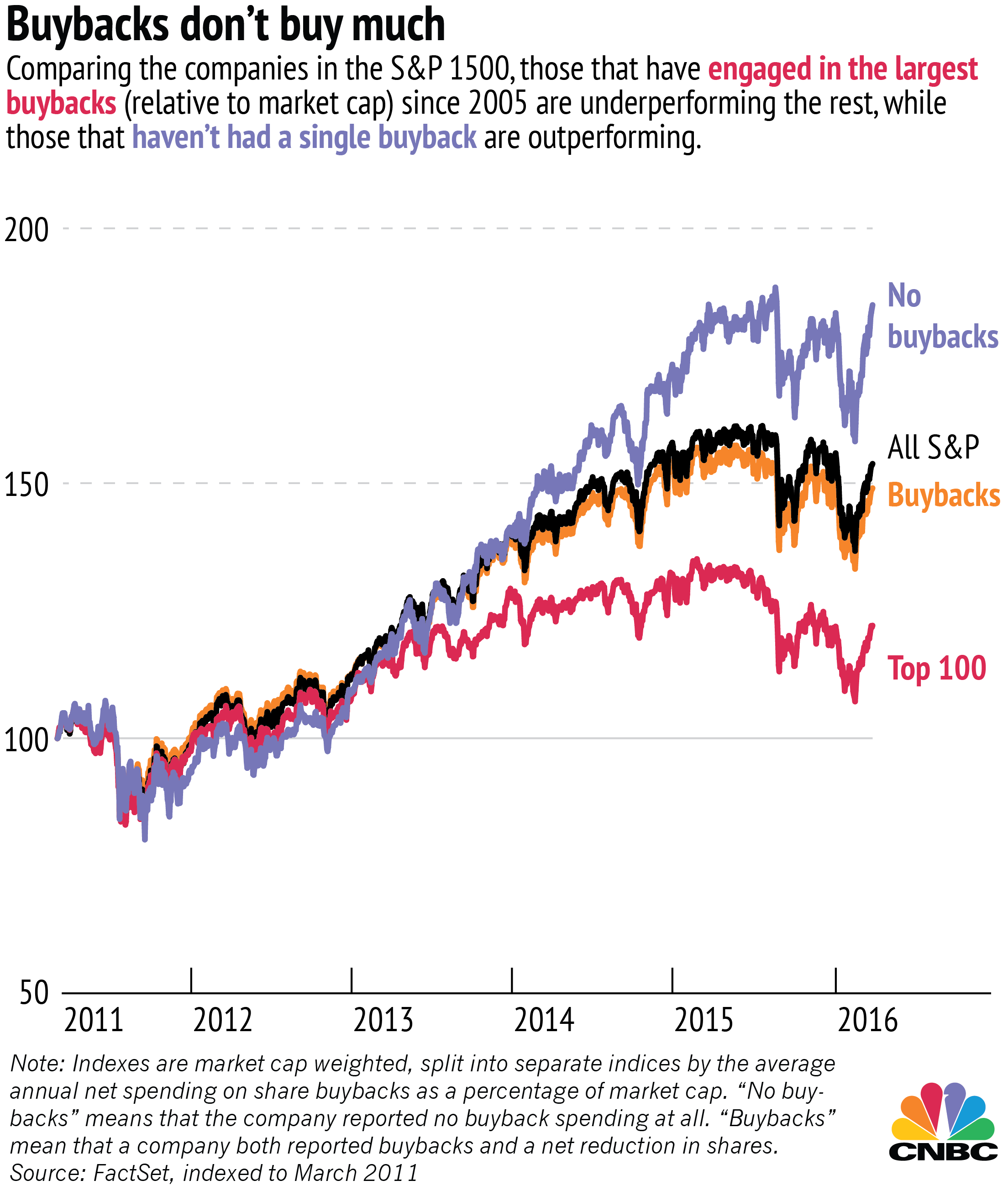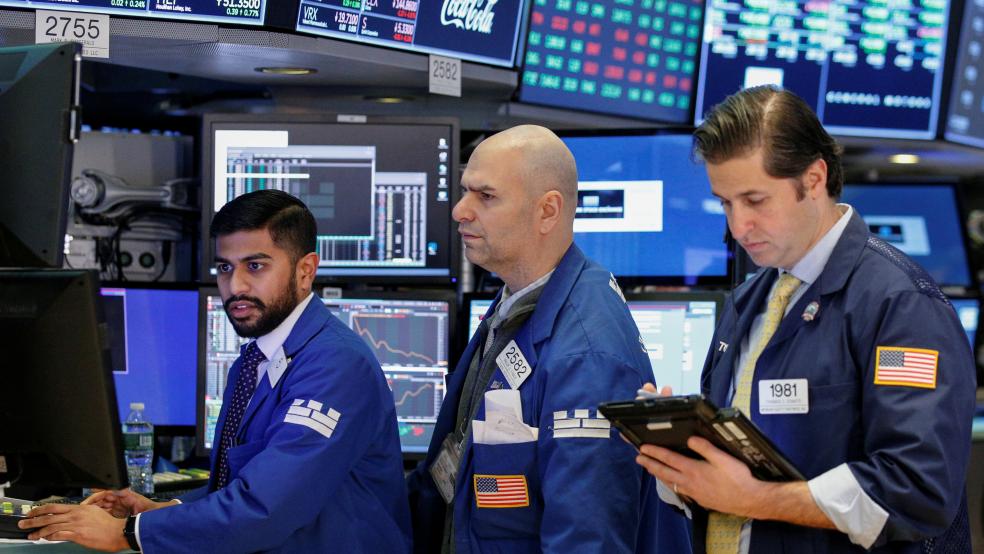Companies that haven't spent a single dollar on stock buybacks have performed better than those that have, according to an analysis of FactSet indexes since 2005.
At the most basic level, the companies spending the most on buybacks in the S&P 1500 appear to simply perform worse as a group.

The four indexes above are weighted by market cap. On an unweighted basis, the 125 companies without buybacks have a median return of minus 5.1 percent — better than the median minus 6.4 percent return for companies that both reported buybacks and a reduction in shares outstanding.
Related: Why Oil Prices Will Take Another Tumble
The 100 companies with the highest buybacks as a percentage of market cap have a median return that is even worse at minus 9.5 percent in the last year. These companies include Big Lots, Hewlett-Packard, Macy's, Xerox and Kohl's.
That effect, of course, could be due to any number of other economic forces independent of a company's decision to do buybacks. But it does point to what many market watchers have warned about in recent years: that the recent enthusiasm for stock repurchase programs could come at the cost of future growth.
Stock buybacks have become a popular vehicle for returning excess cash (or in some cases, borrowed cash) to shareholders, without the commitment usually associated with a dividend. While they can be a good strategy if management thinks the company's shares are undervalued, buybacks also mean less money left for companies to use on capital expenditures and other investments.
Heavy buyback activity helps keep earnings per share steady, but it can also increase the price-to-earnings ratio (because manipulating the number of shares outstanding does not create additional earnings).
Related: Why Market Insiders Don’t Believe the Recent Rebound Will Last
Most of the academic research on stock repurchases over the last few decades has pointed to long-term abnormal returns following stock buyback announcements. But those gains seem to have faded in the most recent decade, according to a paper published in the Journal of Management Science last year. If anything, the effect was negative 36 months after a buyback announcement — a 3 percent abnormal loss.
If buybacks no longer pack the same punch, it could be because companies are relying on them to compensate for declining fundamentals. A paper to be published in the Journal of Corporate Finance found that increases in buyback activity tend to be followed by several quarters of sharp declines in operating fundamentals.
Even as short sellers (usually considered sophisticated investors) bet against those companies, the market as a whole seems to buy into the logic of the share repurchase increase, which boosts earnings per share even as return on assets overall plummet.

"We can't say for sure what would have happened without the repurchase, but it really looks like the stock would have kept going down because of the decline in fundamentals," said Edward Swanson of Texas A&M University, one of the two authors of the paper. "These repurchases seem to hold up the stock price."
Most academic studies don't measure the effect of buybacks over more than few years. But if companies are buying their own stock in an effort to offset weak fundamentals, that could prove to be a bad strategy over the long term. It also suggests the recent boom in buybacks is less a positive consequence of excess cash, but rather a sign that managements have low expectations for their own future fundamentals.
The exact impact of the recent buyback boom still needs to be explored further, but investors should be careful about putting too much faith into companies that rely on buybacks to pump up their own stocks.
This article originally appeared on CNBC. Read more from CNBC:
What Hillary gets wrong on wages




